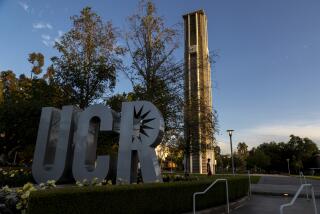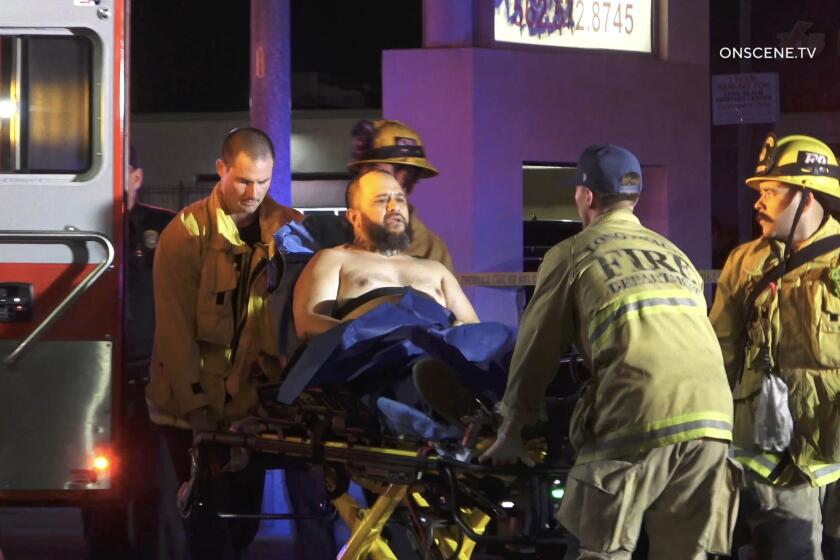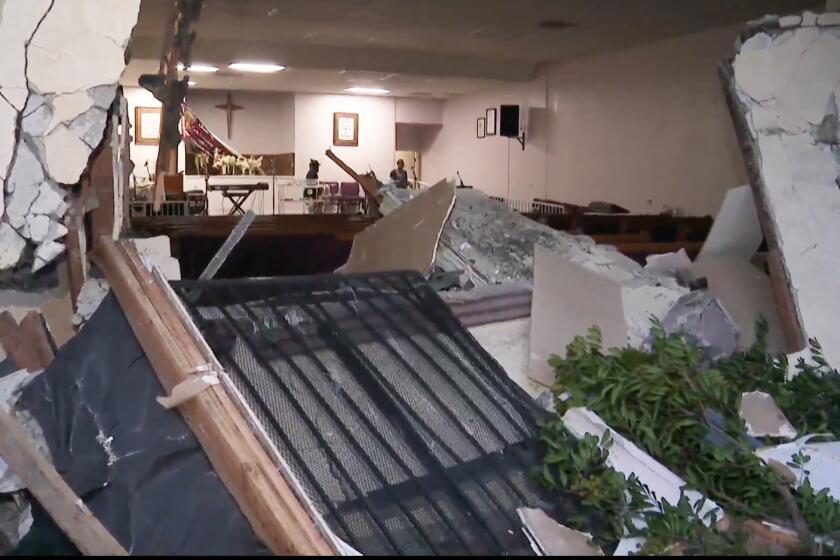Today, Churches Shed Light on AIDS Vigils
When a social worker named Jackson Wheeler was piecing together Ventura County’s first AIDS vigil in 1986, he sent a letter asking more than 100 local churches for assistance: Can you make a donation? Can we use your facilities? Can you help in any way at all?
The response was discouraging: “Nada, zip, zilch, zero,” Wheeler said. “A priest from the Archdiocese of Los Angeles called and wished us luck. There was no offer of support beyond that.”
But that was lifetimes ago.
It was before Magic Johnson shocked his tens of millions of fans.
It was before pallid desk jockeys took a week off work to pedal hundreds of miles for AIDS.
It was before condom commercials offered families gathered around the tube another topic to feel awkward about.
It was before more than 400 Ventura County residents died of AIDS, and many more were diagnosed with the virus that causes it.
It was before I suddenly realized that people I cared for--co-workers, old classmates, neighbors, friends--had been stricken themselves, and that the blight was closer and more terrible than I ever would have guessed.
In the last 13 years, the county’s AIDS vigils have changed. Mourners still show up bearing photos of sons and lovers lost to AIDS. There are songs, a speech or two, candlelight processions; the ritual varies as little as the rhetoric about AIDS, about which so much has been said there now seems nothing new to say.
But in the last few years, the churches have stepped forward, advertising the vigils in their newsletters, offering prayers, opening up their buildings for receptions. One vigil will be held at 6:30 p.m. Sunday on the campus of Cal Lutheran University in Thousand Oaks; the second will at 6:30 p.m. on Sunday, Oct. 3 at the Church of Religious Science in Ventura.
You’re kidding yourself if you believe we are all so sophisticated and compassionate that AIDS no longer carries a stigma. Plenty of sufferers can tell you otherwise. But you’d be equally self-deluded not to recognize breakthroughs where they’ve occurred.
As AIDS has invaded more families, the Rev. Bill Greene of Simi Valley’s United Church of Christ has borne witness to the change.
A decade ago, he remembers some local ministers refusing to conduct memorial services for people who had died of AIDS.
“They said they just didn’t want to be associated with it. They were terrified of how it would be seen in their congregations.”
Some ministers quietly offered counseling to those touched by AIDS, but many families--then, as now--felt smothered by shame--partly because their pastors were so clearly reluctant to deal with the issue. Weren’t homosexuals, after all, supposed to burn in hell?
“One of the things that’s overwhelming is that some families wouldn’t acknowledge the cause of death--even to themselves,” Greene said. More than once, he’s seen parents refuse to allow the addition of their dead son’s name to the national AIDS quilt.
For Greene, this is of more than passing interest.
He’s gay himself, and has seen friends fall to AIDS. His partner of 12 years died of AIDS in 1990.
“It was incredibly traumatic,” he said. “I needed to share it with my congregation, and they just surrounded me with compassion,” he said.
But the United Church of Christ is a different kind of place. Greene proudly describes it as “liberal”-- a phrase you don’t hear bandied about proudly in conservative Simi Valley.
AIDS and its ravages aren’t discussed with as much openness everywhere else. Hardly a week goes by that a school board somewhere turns down an AIDS program on campus, or that some zealot doesn’t proclaim AIDS a divine punishment for homosexuals. Hence, the need for the annual vigils.
Jackson Wheeler still helps organize them. For years, he has volunteered for AIDS Care, the group behind the vigils. A poet, he has written about AIDS and loss. Since 1985, he has counseled AIDS patients. His brother Joe died of AIDS four years ago.
“Why not allow people to stand in community with each other and realize they’re not the only ones who have endured this kind of loss?” he asked. “It’s not about someone being gay or not gay; the real issue here is that people are suffering.”
Amen.
*
Steve Chawkins can be reached at 653-7561 or by e-mail at steve.chawkins@latimes.com.
More to Read
Start your day right
Sign up for Essential California for news, features and recommendations from the L.A. Times and beyond in your inbox six days a week.
You may occasionally receive promotional content from the Los Angeles Times.






